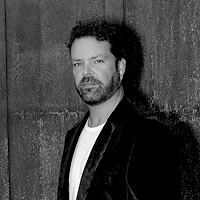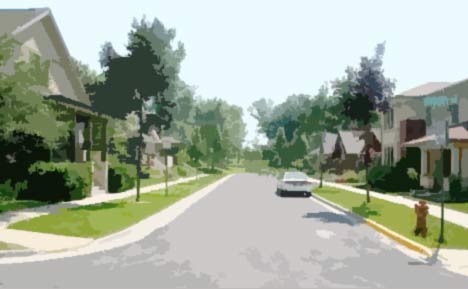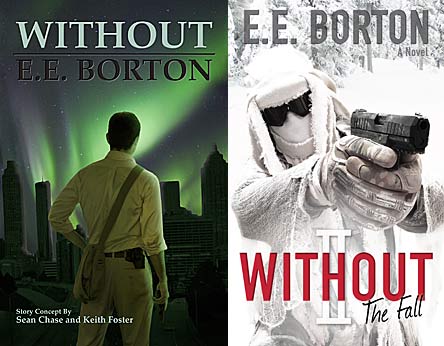Modern Survival In Suburbia: The Intangible Prep
by Eric E. Borton:
INTRODUCTION
Most of my friends and family live in subdivisions in suburban neighborhoods stretching from North Atlanta to Athens, Georgia. As turbulent times surround us, some of them are taking their preparedness more seriously. They’re beginning to understand that their absolute dependency on the grid, city utilities and services, and modern conveniences can be challenged at any time.
With my background in the military, helicopter rescue, and extensive travel to third world countries where being prepared is a way of life, they’re looking to me more and more for advice and guidance. As I direct them to great online resources such as Modern Survival Blog, I wanted to create a series of articles tailored for folks living as I do in suburbia.
MODERN SURVIVAL IN SUBURBIA: THE INTANGIBLE PREP
I was raised a Navy brat. I recently challenged my sister who has a much better memory to count the number of times we moved during my father’s career. The answer was 17 while we were their dependents. My parents moved a few more times prior to his retirement.
During my childhood, the one constant was my grandparents’ home in Norfolk, Virginia. The borders of the property never moved, but the socioeconomics surrounding it did. It transformed from a rural, to a suburban, and finally to an urban neighborhood as the city grew. The one constant about my grandparents’ home was their neighbors.
Everybody knew everybody. Most bought their homes during the same decade and stayed until their death, or the home was passed down to their children. Both of my grandparents are gone, but there are still a few who mow the same patch of grass they’ve been tending for over 50 years. Those types of neighborhoods are relics of a by-gone era, but the lessons are more relevant today than they ever were.
My sister and I couldn’t pick our noses without word getting back to my grandparents. Okay, that’s a bit melodramatic, but you get the point. Everybody knew everybody – and in turn everybody looked out for everybody – including their kids and grandkids. During extended stays when my parents would drop us off like dirty laundry for a little peace and quiet, my grandparents never worried about what we were doing or where we were going. They knew we would be safe because we had eyes on us wherever we went.
In my opinion, survival for many suburban preppers is measured heavily in tangibles. Regardless if someone is prepping for a three-day power outage or for social anarchy, they believe their success will be solely attributed to what they can eat, drink, or shoot. My grandparent’s neighborhood taught me about the importance of some of the intangibles. In this first of a series of articles, I’m going to focus on the most underrated prep in that category. Relationships.
I’ll be purchasing a new home in the coming months. When I find that perfect piece of land, more than likely it will be nestled within another suburban environment. (When the school district is no longer a restriction, I’ll be moving to another home where I can’t hit my neighbor’s house with a rock. But even then, this article will still apply.)
My tangibles will be there for me on the first day in the new house. Food/water prep, gear, weapons, ammunition, medical supplies, and so on. I’ll be starting over with the intangible prep of building relationships with my neighbors. I’ll start working on that immediately.
Do you know your neighbors? I mean, do you really know them? Do you know their names? Would they look out for your kids as they played in the yard? Would they offer you a hand carrying a heavy load into the garage? Would they take action if a stranger was looking into your basement window? Would they offer you help in a time of need if you were injured? Would you do any of those things for them? If you can’t answer those questions, you’re missing an opportunity to exponentially raise your level of preparedness without spending a single penny.
After the truck is unloaded, I’m going to be busy. But I won’t be too busy to give a wave or a smile when I see my new neighbors. If it leads to an instant conversation, great. As with any relationship, I’ll take small steps. I won’t wax poetic about my prepping philosophy during initial contact. I’ll get to know them before I show any of those cards. (As most of us know, the label of prepper or survivalist comes with a certain stigma.)
But more importantly, I know that people who aren’t prepared will seek out those who are. If a neighbor knows I have a stockpile of food, water, and weapons, they’ll eventually come knocking on my door during a crisis. When they become desperate, they’ll kick it in. The best way to avoid that situation is to encourage them to prepare as well. If I’ve established a good relationship with them, it won’t be as hard, or strange, to ease into that conversation.
“Yeah, I remember that storm,” said Rick, opening a beer as I flipped the burgers. “We were stuck in the house with the kids for three days. I thought I was going to lose my mind.”
“I hear ya, buddy,” I said, closing the grill. “When I lived in Virginia, we got hit with a freak ice storm. We were socked in for six days without electricity or water.”
“Damn,” said Rick. “We were running out of everything after two.”
“Same here,” I lied. “But it taught me a few valuable lessons.”
“Like what?” asked Rick.
It’s that simple. You don’t need to start the process by telling a neighbor that you’re a prepper and he needs to be one as well because you can’t take care of two families. You also don’t have to take him into that locked basement room with no windows and shelves full of supplies. But if you can convince them it’s a good idea to have a plan, help them make that plan.
If initial contact doesn’t come that easy, I may introduce myself through a letter or at the next home owners association (HOA) meeting. (And yes, I’m not a fan of HOAs at all, but it’s hard to avoid these days in suburbia.)
It takes time and effort to build trust, but trust is the key component in any relationship. If I see my neighbor clearing land, I’m going to offer my help. If I see my neighbor struggling to start their mower, I’m going to show up with my tools. If the power goes out for more than a day, I’m going to walk next door and make sure they’re okay. When their kids get off the bus or are playing in the yard, I’ll keep an eye out for anyone or anything looking to cause them harm.
At best, I’ll have people I can rely on in a crisis. I’ll know their strengths and weaknesses in a SHTF scenario, as well as how they’ll react in a lesser event. I’ll know if they’re an asset or a liability. My threat circle will change and I’ll have a higher level of confidence my neighbors will stand beside me during an event that challenges the safety of our families. Just as my grandfather knew he could count on his neighbors to preserve the stability of his home, I want to count on mine.
At worst, my new neighbors become one of the many reasons why I prepare.
Because I live in a suburban environment at this point in my life, I’m surrounded by other people. It’s not the ideal location or situation if a catastrophic event does take place, but your environment dictates how you prepare. I believe to be better prepared in my environment, I need to build relationships with people who are in it with me.
Every prepper/survivalist’s situation is unique and needs to be tailored like a new suit. Homestead or rural preppers will have a completely different philosophy, lifestyle, and set-up than I do in suburbia. I can’t paint my house a different color without approval from the HOA. Imagine how far my request would get if I asked permission to put solar panels on my roof, dig a bomb shelter, or install a 500-gallon propane tank in my backyard. The answer is not far at all.
Intangible prepping is as important as the gear and the guns. Knowing who not to trust is as critical as knowing who you can. For me, I want to know everything I can about the people who might be with me in the same boat.
Stay aware. Stay prepared.

About Eric E. Borton:
Served six years with Naval Intelligence in North Africa, Southern Europe, and the Middle East. As a civilian, he served thirteen years with a rescue helicopter service in Atlanta, Georgia, where he currently resides. He is the author of the Post-Apocalyptic series WITHOUT. Learn more about the author and his other titles on his website at http://www.eeborton.com/.
‘WITHOUT’ series by E.E.Borton:
WITHOUT
WITHOUT II


